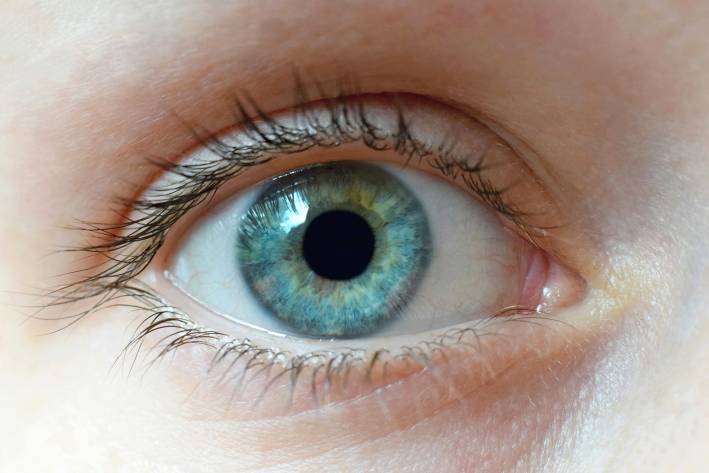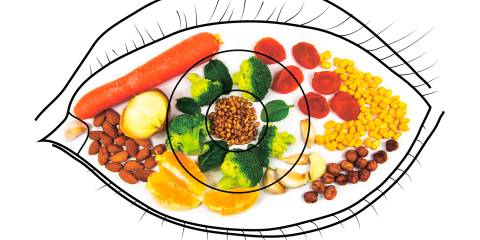Nutrients for Your Eyes
A diet loaded with fruits and vegetables provides much of what we need to maintain healthy eyes, but certain nutrients are really helpful.
-
Vitamins for Eye Health
A good multivitamin/mineral supplement includes many of the essentials for eye health, including vitamins C, E, and the Bs, and minerals such as zinc, selenium, and calcium.
For Macular Degeneration
For people who already have an intermediate stage of age-related macular degeneration (AMD), the National Eye Institute has shown that combinations of vitamins C and E, beta-carotene, zinc, and copper may reduce the risk of additional vision loss.
Some supplement formulas are designed to provide this combination, which is based on the Age-Related Eye Disease Study (AREDS).
-
Lutein and Zeaxanthin to Filter Light
The two carotenoids, lutein and zeaxanthin, are often paired in supplements, as they work together to filter harmful blue light and act as antioxidants in the eye. They are found naturally in the retina and have been shown to reduce the risk of AMD and cataracts.
According to the American Optometric Association, “Daily intake of lutein and zeaxanthin through diet, nutritional supplements, or fortified foods and beverages is important for the maintenance of good eye health.”
The association cautions that most Western diets are low in these important nutrients, but dark green, leafy vegetables such as spinach and kale are excellent sources.
-
Omega-3s for Lower Risk of Vision Loss
A study from earlier this year found that DHA —an omega-3 fatty acid found in fish—prevented the accumulation of a toxic molecule in the retinas of lab animals that accumulates with age and causes vision loss.
Omega 3s from fish also reduce the risk of AMD, according to a recent Harvard Medical School study.
Go Easy on The Eyes
Staring at a computer screen all day is tough on the eyes.
Optometrist Nathan Bonilla-Warford, OD, offers these tips for less strain while working:
- Use a large monitor or a screen magnifier.
- Minimize bright overhead light.
- Adjust the screen so you’re looking at it from a slightly downward angle, and make sure you’re about 24 to 28 inches away.
- Use the “20-20-20” rule. Take a 20-second break every 20 minutes and look at something 20 feet away. And remember to blink!





